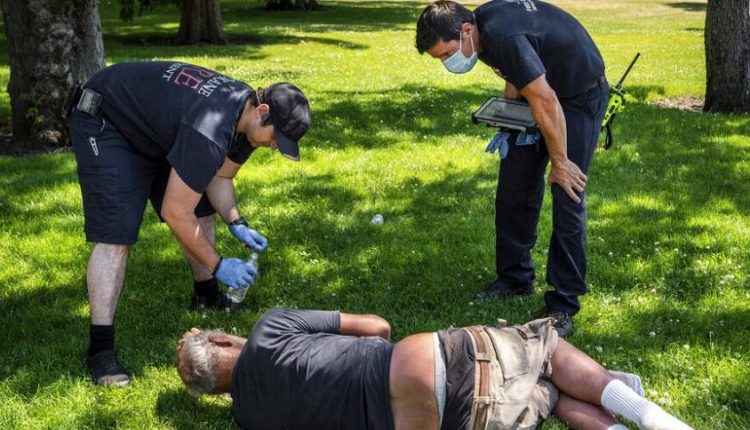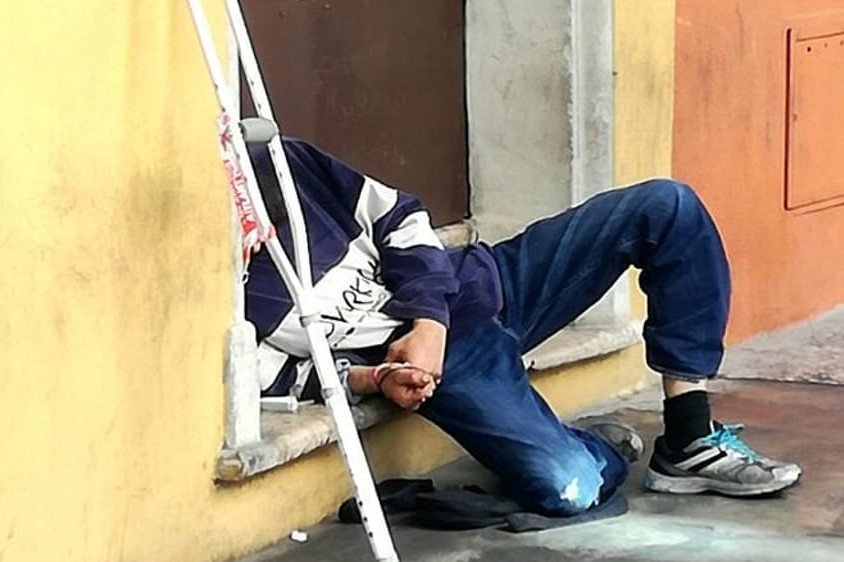
First aid in the event of an overdose: calling an ambulance, what to do while waiting for the rescuers?
In medicine, the term ‘overdose’ refers to a dose of a substance (e.g. medication such as antidepressants or drugs such as cocaine or heroin) that is excessive in relation to the body’s tolerance: such a dosage causes intoxication in the person who has taken it, which manifests itself with a series of different symptoms and signs depending on the type of substance taken in excess and the amount of the substance
An overdose can quickly be fatal so it is important to know what to do if you suspect it in someone.
THE WORLD’S RESCUE RADIO? IT’S RADIOEMS: VISIT ITS BOOTH AT EMERGENCY EXPO
Overdose, what to do?
What should you do if someone you know has overdosed or you fear they have?
First of all you should immediately call for help with the Emergency Number trying to give the operator as much information as possible:
- tell how the incident occurred;
- say that an overdose is suspected;
- list the substances taken by the person (known or even suspected);
- describe symptoms and signs.
If you have a vehicle, drive the subject to the emergency room of the nearest hospital yourself.
Remember: speed is very important and one minute more or less can literally make the difference between life and death for the person.
How to deal with an overdose while waiting for help?
While waiting for help, complications can occur very quickly, such as respiratory or cardiac arrest, convulsions, loss of consciousness.
Here is what to do:
- do not leave the person alone;
- try to keep the person calm and awake, e.g. by pinching their cheeks, bathing their face and wrists, talking and trying to walk;
- if a cyanotic (bluish) face, irregular breathing, incommunicado breathing and a weak pulse appear, place the person in a safe lateral position (see image above) to prevent them from choking on their own vomit, which is a frequent cause of death in overdoses;
- check the respiratory rate: if the person is not breathing, proceed with artificial respiration;
- check the heart rate: if the person has no pulse, proceed with cardiac massage;
- if the person is very hot, cool the person by undressing him/her and fanning him/her;
- avoid giving food or drink to the subject;
- do not attempt to induce vomiting;
- if the subject vomits, check that his or her airways remain clear;
- if convulsions occur, prevent the subject from harming themselves;
- ensure that the head is tilted back and the tongue is moved forward and to the side so that the airway remains clear.
Even if the overdose does not appear severe or the symptoms are improving, it is always a good idea to call for medical help and/or accompany the person to the emergency room.
Overdose, what to do when the ambulance arrives?
Once help has arrived, you should
- tell the staff how the incident occurred;
- say immediately that an overdose is suspected;
- list the substances taken by the person (known or even suspected);
- if you are still in possession of the substance taken by the person, hand it over to medical personnel.
Read Also:
Emergency Live Even More…Live: Download The New Free App Of Your Newspaper For IOS And Android
What You Need To Know About Substance Use Disorder
What Is Ketamine? Effects, Uses And Dangers Of An Anaesthetic Drug That Is Likely To Be Abused
Sedation And Analgesia: Drugs To Facilitate Intubation
Community Management Of Opioid Overdose
A Powerful Hand To Reverse An Opioid Overdose – Save Lives With NARCAN!
Accidental Drug Overdose: The Report Of EMS In The USA




